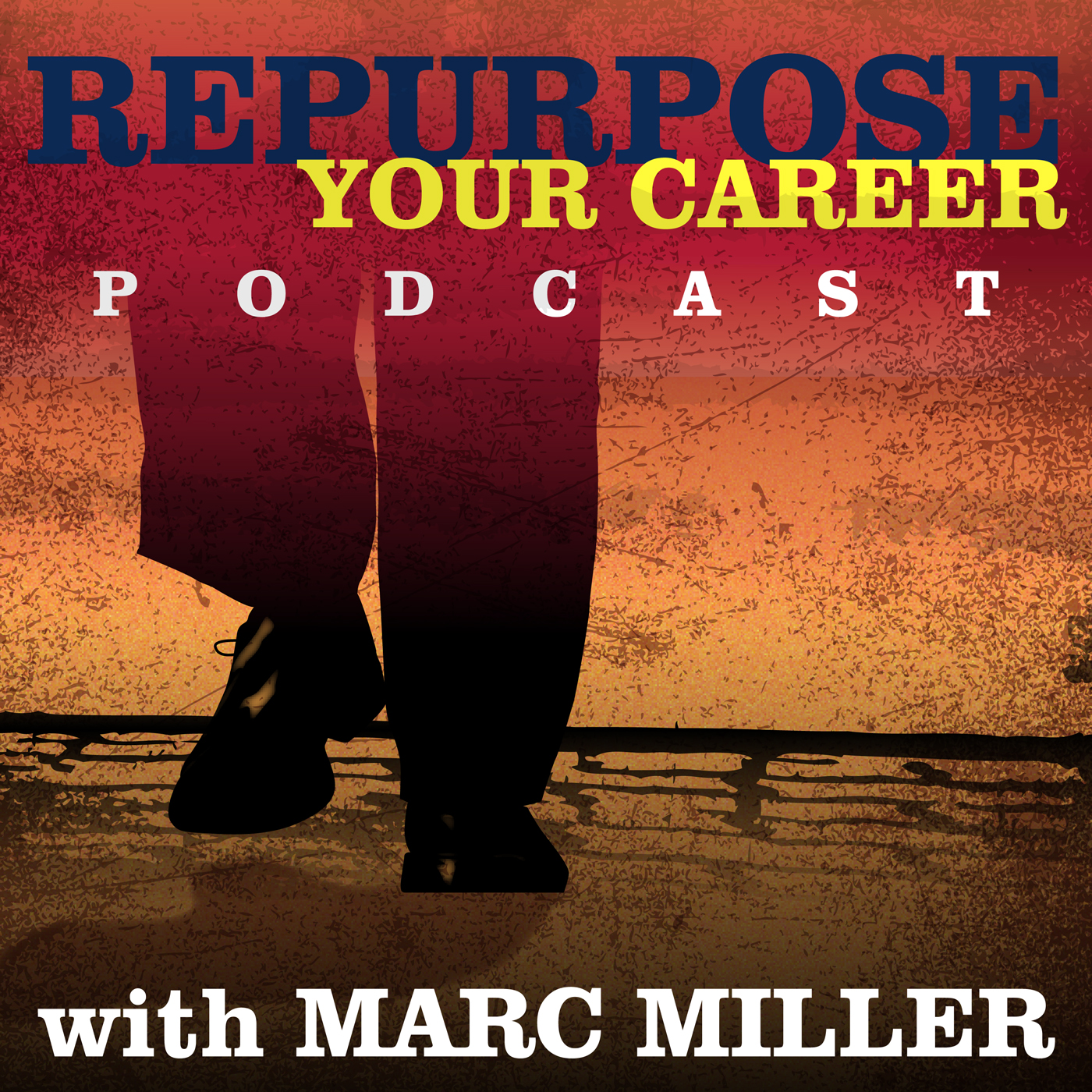5 Things to Consider Before a Midlife Career Change
 If you’re in your 40s or 50s and are considering a career switch, you’re not alone. According to a 2014 survey, more than 4.5 million Americans made a career change in midlife, either to pursue a more fulfilling line of work or earn more money.
If you’re in your 40s or 50s and are considering a career switch, you’re not alone. According to a 2014 survey, more than 4.5 million Americans made a career change in midlife, either to pursue a more fulfilling line of work or earn more money.
Another study that looked at workers aged 45 and older by the American Institute for Economic Research (AIER) found that 82% of those who made a midlife career switch had been successful. Of these successful career switchers, 60% said they were finally doing something they felt good about, 65% felt less stressed at work, and 70% were earning the same or a higher salary.
Of course, before making any big changes to your career, it’s important to weigh the pros and cons to make sure it’s the right decision for you personally, so here are five important things you should consider before a midlife career change.
Is it what you really want?
It can be difficult to judge whether a particular job or industry will be a good fit until you’ve experienced it firsthand, so even if you think you know exactly what you want to do, you should consider giving your new career a test drive before leaving your current job.
Volunteering or interning are excellent ways to gain insight into an unfamiliar industry, but if neither of these is an option, you could try things like freelancing, attending industry conferences and events, taking short courses, finding someone to shadow for a few days, or even just connecting with industry professionals on Twitter, LinkedIn, and other social networks.
Can you afford it?
Switching careers often means starting at the bottom and working your way back up, which may mean working for less money, at least initially. Additionally, even if you have some transferable skills, you’ll likely still need to do some retraining or gain licensing.
Can you afford to survive on a lower income for a while if necessary? Can you afford the cost of the necessary education or retraining? Find out how much you can expect to earn during the first few years in your new career and create a realistic budget based on those figures.
Do you have a strong support system?
Having the support of your family and friends can make all the difference when changing careers, and according to the AIER report, 88% of successful career changers believed family support had played an important role in their success.
Get feedback from friends and family members you trust, and listen to their opinions and advice. This is especially important if you have a spouse or other close loved one who will be personally affected by the change. Discussing your ideas with them and being open to critique will help them understand your motivations and get on board with the plan.
Listen to the most recent episode


Marc Miller
Discover the Perfect Destination for Your Retirement or Remote Work Abroad #337
Of course, not having the full support of your family or friends isn’t necessarily a good enough reason to stay in a career that isn’t right for you, but having people you can go to for advice or just confide in when things aren’t going according to plan can definitely make the switch smoother.
Will your new career utilize your current skill set?
One of the most important things the AIER report highlighted is that the most successful career changes were the ones who found a way to apply their current skills to their new career rather than doing something completely outside their skill set.
So although you’ll probably need to brush up on certain skills or even learn a few new ones, your career change is more likely to be successful if you move into a profession that allows you to put the skills and experience you already have to good use.
Think about the career you’re interested in pursuing and how your current skills and experience translate to that new field. If you find it difficult to pinpoint exactly what your skills are, start by making a list of your current job duties and past accomplishments, and then think about the specific skills you use or have used to accomplish each one.
Are you changing careers for the right reasons?
There are many reasons why people change careers, from feeling unfulfilled or unchallenged at work to wanting more flexibility or a better work/life balance. Whatever your reasons may be, though, you should ask yourself whether a new career is really the best solution.
Switching to a new career requires a lot of effort and can be expensive too, so before you resort to a complete career change, do some research to find other, potentially easier, solutions to your problem. Would taking on new responsibilities or pursuing a promotion help you feel more fulfilled? Could a new boss or different colleagues relieve some of your stress? Or perhaps negotiating shorter hours would help you achieve a better work/life balance?
Once you’re absolutely sure that nothing but a career change will solve your underlying issues, you’ll be more confident in your decision and will also have a better idea of what your new career should provide.
Author bio:
 Marianne Stenger is a writer with Open Colleges one of Australia’s leading online education providers. She covers everything from life hacks and career development to learning tips and the latest research in education. You can connect with her on Google+ and Twitter or find her latest articles here.
Marianne Stenger is a writer with Open Colleges one of Australia’s leading online education providers. She covers everything from life hacks and career development to learning tips and the latest research in education. You can connect with her on Google+ and Twitter or find her latest articles here.
Like What Your Read? Get Career Pivot Insights
Do You Need Help With ...

Check out our Help Center where you have access to 14 different content portals.


I can see that this trend will only continue to increase. Was surprised about the salary stats, although did not say how long people took to work back up to the same salary level. Agree that you have to conduct a full assessment before diving into the change. Skill and strength matching is going to be a big factor.
Ian,
The world is not slowing down. The rate of change will continue to accelerate. Therefore, it will be critical to make pivots every few years.
Thanks for your comments!
Marc
Me too, Ian. I was also surprised at the salary stats. I resisted a change and drug my feet for almost a decade because I knew I’d be lucky to make HaLf of what I was making before–at least initially. That was the only thing that stopped me from making a move sooner. If money is no object, then why wouldn’t you go for it?
Often a career change is necessary if you and you family move to an area where there are no jobs in your industry. This is where I’m at. I tried to go out on my own with no success, so I have 2 options: partially relocated as a weekly commuter to a large city or choose a new line of work and utilize my cross over skills. Luckily my cost of living is a lot less in my new area (150 miles from a large city) that I can afford to take a pay cut if needed.
Sarah,
Have you considered looking for a remote job on FlexJobs.com?
Marc Miller
It’s very challenging if you are considering to switch careers at 40’s or 50’s. Here are very important hacks discussed if you also decide to switch your career at midlife. Really worth reading.
First of all I’m 59, I just recently changed careers from high stress pharmacy technician to switch board operator at a Hospital and I’m bored to tears. Secondly I have a previous college debt of $30,000 and no way to pay it because my salary is so low. I have about 100 college hours but, they may not be current enough to use. Tell me what to do.
Terisa,
Wow. I do not have a good answer for you. Is your college debt currently at $30K or was that the original balance. I cannot tell you the number of people who I have run into who forgot about their college debt until they applied for SSI. Your college debt never goes away and will be deducted from your social security payments.
Marc Miller
Awesome blog! Do you have any hiknts for aspiring writers?
I’m hoping too start myy own website soon but I’m a
little lost on everything. Would you recommnd starting with a free platform liie WordPress or go for a paid option? There arre so many options out
there hat I’m completely overwhelmed .. Any recommendations?
Appreciate it!
hello what’s your opinion at doing a three year degree at 57 coming out at 60 considering retirement at mid seventies.